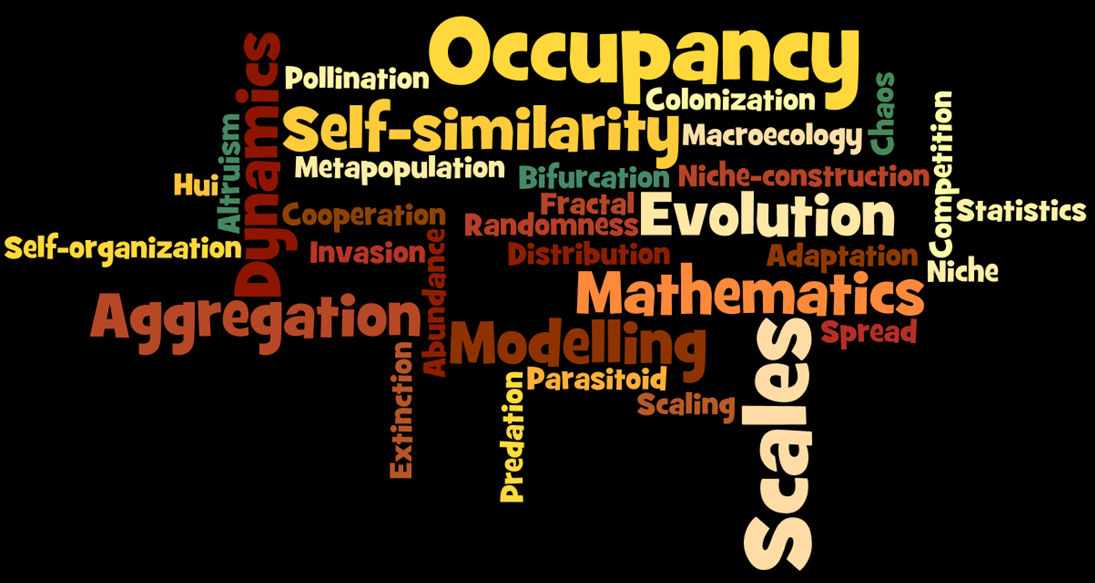Why do we do what we do? Curiosity (02:08)

At the core of our research is the development of sophisticated models that capture the structural and functional dynamics of biological complexity. Below is a list of ongoing research clusters:
-
Biodiversity Entropy and Symmetry: Develop a unified framework to quantify biodiversity by harmonising existing indices and exploring the role of entropy, symmetry, and constraints across spatiotemporal scales. The research aims to harmonise existing biodiversity metrics by exploring how biological information and entropy are organised across space and time. Using mathematical models, this project will analyse the role of symmetry in biodiversity patterns and address biases in sampling and observation that often skew these metrics.
-
Dynamic Species Distribution Modelling: Build models to explore the non-equilibrium dynamics of species distributions, including the effects of dispersal, environmental changes, and adaptive responses. A significant component of the research focuses on non-equilibrium species distribution modelling, utilising integrodifference and integrodifferential equations to describe complex processes like travelling waves and push-pull dynamics in species populations. These models aim to capture the dynamic, non-stationary nature of biodiversity patterns under changing environmental conditions.
-
Macroecological Patterns under Climate Change: Investigate how future climate scenarios will affect species distributions, biome formation, and biodiversity, providing insights into ecosystem resilience. The programme will employ advanced biodiversity metrics, including zeta diversity, alongside phylogenetic relationships and environmental covariates such as temperature and precipitation. These models will forecast how biomes may shift under future climate scenarios, with a particular focus on land and marine invertebrates and plant distributions.
-
Animal Movement and Behaviour: Utilise deep learning and telemetry data to model animal movement and decision-making processes, while studying multi-agent interactions and collective behaviour. Telemetry data, earth observation data (e.g., satellite imagery, land cover maps), and machine learning algorithms, including deep reinforcement learning, will be employed to model animal movement patterns. The programme explores both individual and collective behaviours, focusing on how animals respond to environmental stimuli and the interactions within social groups such as herds and swarms.
-
Evolutionary Game Theory and Adaptive Games: Investigate the evolution of social behaviours, cooperation, competition, and adaptation using evolutionary game theory, with a focus on ecological and evolutionary dynamics. By applying evolutionary game theory, the research investigates the conditions under which complex social strategies emerge and evolve in biological systems. Adaptive dynamics will be used to model how species interactions, genetic variations, and environmental factors drive the evolution of cooperation, competition, and adaptation, ultimately influencing diversification and extinction processes.
-
Complex Adaptive Networks: Explore the structural emergence and stability of complex adaptive networks such as ecological food webs and pollination networks, examining their resilience under environmental changes. Research on complex networks will explore how ecological systems like food webs and pollination networks form self-organising structures that exhibit resilience to perturbations. Multiscale models will be developed to study how these networks coevolve, adapt, and maintain stability despite environmental fluctuations.
Note to prospective students: As our research is interdisciplinary in nature, our students and postdocs are from a diverse array of background with a wide range of expertise. Go to the Opportunity page to find out more on bursaries/fellowships and how to apply.